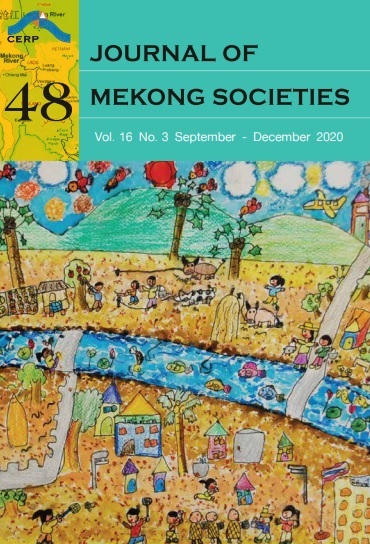Roles and Actions of State Agencies on Border Area Development: A Case Study of Chong Ahn Ma Checkpoint for Border Trade, Thailand
Main Article Content
Abstract
Border trade at Chong Ahn Ma in Ubon Ratchathani province, Thailand emerged around 1992 after the “battlefield to market place” policy was launched in Thailand in 1998. The area is located in the overlapping territorial claim zone between Thailand and Cambodia. Originally an unofficial border trading post, it was upgraded to a temporary checkpoint for border trade in 1996. This article focuses on the roles and actions of state agencies that influence economic activities in this trading area. The data were collected by in-depth interviews, focus group discussions, and non-participant observation. The results reveal that state agencies play important roles in promoting and regulating that trade. The present trading area has become more strictly controlled than it was in the past and the amount of trade has become more sizable. There were two main agents partaking in the Chong Ahn Ma trading zone development – governmental agents and local traders. The trade in Chong Ahn Ma conducted among local people is flexible with no high trade values. However, there are claims of rights of control between state agencies over the area with overlapping rules and laws on the trade zone, that led to ineffective border trade management. Thus, clear border trade zone re-management is required together with the participation of local traders.


